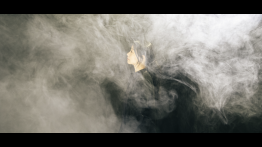Creating New Sensory Languages with Invisible Sculptures
Wednesday, October 6, 2021, 6 - 7pm

Can you trust something that you can't see? When an object does not have a form but is perceivable, does that object "exist"?
Yeseul Song is a new media artist who creates Invisible Sculptures, a series of sculptures that can be "seen" by senses other than vision. These sculptures are made of invisible materials such as sound, air, heat, smell, and thought, suggesting more inclusive and creative views of the world. During this talk, Yeseul will share her experiences creating Invisible Sculptures and other interactive art proiects.
Registration required for this free public program which will also be available via livestream. Attendees must show proof of vaccination and wear a mask indoors.
Yeseul Song is a Korean-born, New York-based artist who examines the fluid nature of human perception and its relationship with our society, culture, and the environment through interactive artwork that combines digital technology and analog materials. She is currently a Resident Artist at the Museum of Arts and Design, a Member of NEW INC and Rhizome's Art & Code track, and a Fellow at Engelberg Center. A winner of iF Design Award and Communication Arts Interactive Annual, she teaches at NYU's Tisch School of the Arts Interactive Telecommunications Program (ITP).




